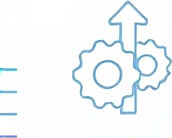The Role of Greeks in Options Trading and Compounded Leverage
 by Shanie Goodwin
by Shanie Goodwin
Greeks such as Delta, Gamma, Theta, Vega, and Rho are essential tools for options traders seeking to manage risk and enhance returns through compounded leverage. This article examines their impact on investment strategies for advanced professionals.

Options trading offers sophisticated methods for achieving compounded leverage, where gains can build upon themselves over time. The Greeks serve as critical metrics in this process, allowing traders to assess and adjust their positions effectively.
Understanding the Basics of Greeks
The Greeks represent a set of variables that measure the sensitivity of an options price to various factors. For instance, Delta indicates how much the option's price changes with the underlying asset's movement. This metric is particularly useful in scenarios where traders aim to amplify returns through leveraged positions.
Gamma measures the rate of change in Delta, providing insight into the stability of an option's price as the market fluctuates. In compounded leverage systems, monitoring Gamma helps professionals maintain control over their portfolios during volatile periods.
The Impact on Compounded Leverage
In compounded leverage systems, the interplay of Greeks becomes vital for long-term growth. For example, Theta reflects the time decay of an option, which can erode value if not managed properly. Traders often use Theta to select options that align with strategies focused on sustained leverage.
Vega measures sensitivity to changes in implied volatility, a factor that can significantly influence leveraged trades. By analyzing Vega, investors can position themselves to benefit from volatility shifts, thereby enhancing the compounding effect of their investments.
Rho, though less discussed, gauges the impact of interest rate changes on options prices. In environments where rates fluctuate, Rho plays a key role in refining strategies for compounded leverage.
Strategies for Application
Professionals can apply Greeks in various ways to optimize compounded leverage. One approach involves combining Delta and Gamma to create delta-neutral strategies, where the portfolio's overall Delta is minimized to reduce directional risk while still allowing for leverage gains.
Hedging with Theta is another technique, where traders offset time decay by adjusting positions regularly. This ensures that the compounding process remains efficient without unnecessary losses.
For volatility-focused strategies, Vega analysis helps in selecting options that thrive in uncertain markets. Such tactics enable traders to build leverage that compounds through market cycles.
Risks and Considerations
While Greeks facilitate compounded leverage, they also highlight potential pitfalls. Over-reliance on a single Greek, like Delta, can lead to unexpected losses if market conditions change abruptly.
Effective risk management involves regularly reviewing all Greeks to maintain a balanced portfolio. This analytical approach ensures that compounded leverage works in favor of the investor rather than against them.
In practice, traders might use software tools to track these metrics in real-time, allowing for precise adjustments that support long-term growth.
Case Studies in Action
Consider a scenario where an investor uses a combination of Greeks to enhance a leveraged position in a stock index option. By focusing on Gamma and Theta, the trader adjusts holdings to capture gains from market movements while mitigating decay.
Another example involves Vega in commodity options, where volatility spikes lead to amplified returns through compounded leverage. These cases demonstrate how integrated use of Greeks can lead to superior outcomes.
Conclusion
The application of Greeks in options trading provides a structured way to achieve compounded leverage, offering experienced investors tools for informed decision-making. By integrating these metrics into their strategies, professionals can navigate investments with greater precision and potential for growth.
In summary, the Greeks stand as foundational elements for those engaged in advanced techniques, paving the way for enhanced financial performance.
